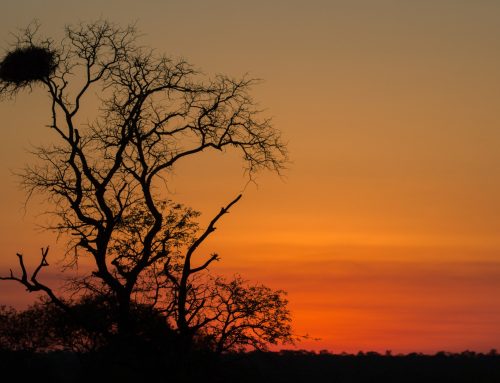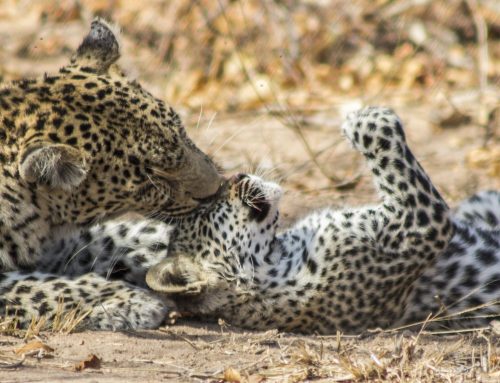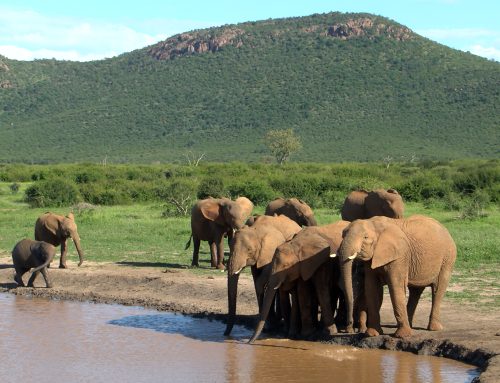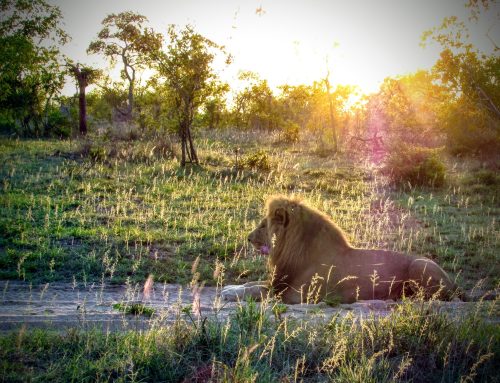Last week we had a particularly intense sighting that left some of you with a bad taste in your mouth. Because WildEarth values transparency and respects the opinions of its viewers, we want to revisit what happened when we encountered a pride of lions digging out and subsequently killing a warthog.
When Brent arrived on the scene it was too light to have switched to the infrared lights. Initially he was intending only to show you the interesting behavior of the lions digging. As the sighting progressed, light levels changed and he did not have time to switch to infrared in the middle of the action.
As many of you know WE have a policy to use IR lights instead of spotlights in a hunt for years but in this situation Brent did not.

Brent states that he “decided to use the spotlight because the prey animal was deep underground and so would not be affected by it. There was also no danger of alerting the prey to the presence of the lions, given that it was already frantically aware”.
There were multiple entrances/exits to the one burrow and it would have been impossible to predict which one would be used by the warthog if it indeed tried to escape. With this in mind, Brent states: “I positioned the car 40 meters from the closest hole, where I had the best view. This was not from a filming perspective but so that I had a view of all of the variables, exactly so that I could avoid interfering.”
This was when the situation unexpectedly changed. Brent was still discussing the behavior of the lions, when the warthog made its move. With the warthog above ground, Brent realized that the spotlight could in fact interfere with the outcome of the hunt; he immediately switched off the light. A moment later, and now completely in darkness, something hit the car. Brent explains:
“I honestly believe that it was one of the lionesses rather than the warthog because I could hear the warthog running on the other side of the vehicle when it hit. At this point, my mistake was in not acknowledging that something had hit the car. This was not out of a desire to deceive anyone but to prioritize warning new viewers because a warthog kill is possibly one of the most disturbing kills to watch due to the noise it makes.”
In retrospect even though there was no perceived risk to the animal and little time to stop and deploy IR lights we should not have used a spotlight in this sighting as it is in direct contravention of our policy. Brent does however sincerely believe that the use of the spotlight did not change the outcome of the interaction between the lion and the warthog.
While it is impossible to design a procedure that could encompass all scenarios and variables, we nonetheless strive to bring African wildlife to the world at large with minimal impact to the wildlife. In hindsight, it would have been more prudent to use the available infrared lights as a precautionary measure and in future we will rather leave the sighting than use a spotlight during a hunt as is our policy.
WE are constantly trying to improve our policies to minimise impact and it is because of this scenario that WE have honed our policies.

We feel that it might aid in clarity to share our policies regarding our use of spotlights in the field:
- They are used primarily as a search tool to find nocturnal creatures
- No diurnal animals may be illuminated by spotlights
- The guide is to use his/her discretion as to if/when the light might be affecting a nocturnal creature negatively.
- As far as possible, the spotlight ‘wash’ should be used to illuminate the animal i.e. the periphery of the beam.
- If, once an animal has been spotted, it is possible to view it with infrared light then this must take preference over spotlight use not matter how little the guide may think the animal is affected by the spotlight.
- No spotlight may be used in a hunt situation – only infrared light can be used for hunting.
- If there is any doubt at all, the spotlight is not to be used.
- If, for any reason whatsoever, the infrared system is not in place or functioning, the spotlight policies above are not to be compromised in any way.
It is important for us that you know that as individuals and as a company we constantly aim to minimize our impact on the animals. This is an ongoing process and will absolutely include improving our policies as necessary. All of us at WildEarth have a passion for wildlife and take our commitments of non-interference very seriously. We regret if that hasn’t always been abundantly clear. As always, we welcome any comments or questions that you may have.
Sincerely,
The WildEarth Team





I stand by Wild Earth and Brent for instantaneous decisions that need to be made during encounters. Sensitive viewers need to turn away. I have turned my ipad around many times during some kills. Thank you for your continued education about Africa and the wildlife.
I have been watching Safari Live everyday for 4 years and I trust Brent’s knowledge and expertise on what ever decisions he makes regarding any situation.
As the above writer (KenyaPenguin) stated, I too believe Brent handled the situation very well. I watched from the beginning through the end. We all heard something crash into Brent’s vehicle, and since his vehicle was the only one at the scene, we knew it had to be an animal. This could have happened whether the IR light was on or not. So I didn’t have any problem with this. What I do take umbrage with is when we – your viewers – were chatting at the next drive and this subject came up, the moderators immediately cut off our conversations. We were told by the moderators that this “crash never happened”, and we should no longer discuss it. One would think we were discussing the JFK assassination and shots fired from the grassy knoll. We all heard the crash of an animal running into Brent’s vehicle; we just couldn’t see which animal because it happened too fast and it was too dark. Brent was just about to tell us, but then he got distracted by the animals and his narration; the lioness caught the warthog; and due to the late hour, the show was over. I have no complaints at all on how Brent handled the situation. But to shut down your viewers’ conversations regarding the hunt we witnessed, with all of its variables, that was my complaint and something I found to be unacceptable. Don’t misunderstand me. I’m still a loyal fan of WL. But just as the animals cannot be controlled, there will always, on those rare occasions, be an incident that the guides cannot control. And more often than not, your viewers are going to chat about it.
I am sorry to hear some people apparently complained about this situation. I happened to be watching when it all came down and thought, under the circumstances, Brent and everyone handled it very well. It was a very fluid situation and split second decisions were made. They were appropriate. You cannot predict animal behavior and when something this intense is occurring there is little one can do sometimes. It is nice of WE to explain but I also am so sorry anyone had an issue. No explanation should have been necessary. Thank you.